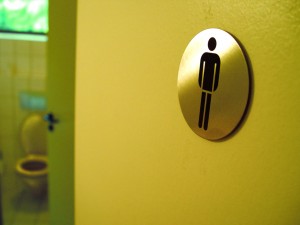 CHARLOTTE, N.C. — Legislative leaders in North Carolina have agreed to call a special session to repeal the state’s “bathroom bill” known as H.B. 2 after council members in Charlotte voted to rescind a controversial city ordinance that prompted the state law.
CHARLOTTE, N.C. — Legislative leaders in North Carolina have agreed to call a special session to repeal the state’s “bathroom bill” known as H.B. 2 after council members in Charlotte voted to rescind a controversial city ordinance that prompted the state law.
“Senate Leader Phil Berger and House Speaker Tim Moore assured me that as a result of Charlotte’s vote, a special session will be called for Tuesday to repeal HB 2 in full,” Democratic Gov.-elect Roy Cooper said in a statement on Monday. “I hope they will keep their word to me and with the help of Democrats in the legislature, HB2 will be repealed in full.”
The move comes after the Charlotte City Council voted unanimously 10-0 Monday morning to void its ordinance passed in February that allows men who identify as women to use the women’s restroom, and vice versa. Charlotte Mayor Jennifer Roberts remarked, however, that the vote “should in no way be viewed as a compromise of our principles or commitment to non-discrimination.”
Current Gov. Pat McCrory views the repeal as a political move by leftists, considering the timing of the vote.
“This sudden reversal with little notice after the gubernatorial election has ended sadly proves this entire issue, originated by the political left, was all about politics at the expense of Charlotte and the entire state of North Carolina,” McCrory he said in a statement. “But as I promised months ago, if the Charlotte ordinance was repealed, I would call our General Assembly into a special session to reconsider existing state legislation passed earlier this year.”
He added that the situation is only part of a larger national issue that is to be resolved by the courts.
As previously reported, Cooper, who had previously served as the state attorney general, had refused to defend H.B. 2 in court when the state was sued by the U.S. Department of Justice, calling it a “national embarassment.”
But “[n]ot only is this new law a national embarrassment,” he said, “it will set North Carolina’s economy back if we don’t repeal it. The threats to our economy will grow even darker the longer this law stays in effect.”
The law required those who identify as the opposite sex to present their birth certificate before using public restrooms that correlate with their “gender identity.” McCrory defended the law as being reasonable since transgenders could have their birth certificate changed and would then be permitted to use their preferred restroom.
“Businesses are not limited by this bill. Private individuals, companies and universities can adopt new or keep existing nondiscrimination policies,” his office also noted. “[I]f a privately-owned sporting facility wants to allow attendees of sporting events to use the restroom of their choice, or install unisex bathrooms, they can. The law neither requires nor prohibits them from doing so.”
However, corporations such as PayPal still pulled out of plans for expansion in the state as a form of protest. The co-founder of PayPal, Peter Thiel, identifies as homosexual and currently serves on the Trump presidential transition team. Nearly 70 other corporations, including Apple, Dropbox, eBay, IBM, Microsoft, NIKE, Morgan Stanley, Etsy, Levi Strauss, American Airlines, Hilton Worldwide and Marriott International, also joined an amicus brief in support of having the law struck down in court.
Now that H.B. 2 is set to go up for a repeal vote on Wednesday, Cooper opines that the move “will help to bring jobs, sports and entertainment events back and will provide the opportunity for strong LGBT protections in our state.”
However, the North Carolina Family Policy Council says that repealing the law would be a setback for residents and is disappointed with the compromise.
“The repeal of House Bill 2 would represent a significant betrayal of the citizens of North Carolina who deeply care about the privacy and safety of women and children in our state,” President John Rustin said in a statement. “House Bill 2 was designed to protect the safety and dignity of our state’s citizens, and it is unconscionable that Governor McCrory and our legislative leaders would push for its repeal…”
“Moreover, such a move would invite contentious battles in communities all across North Carolina, as proponents of open bathrooms and misguided political correctness seek to bully and pressure local elected officials to pass Charlotte-style social policies,” he said.
Become a Christian News Network Supporter...


